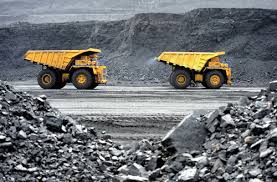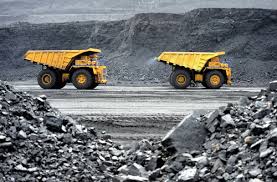
The prices for thermal coal and liquefied natural gas (LNG) was boosted as power stations fire up to meet a surge in electricity demand as there has been advent of an early winter sharp cold snap in northeast Asia and the first November snow fall in Tokyo in 54 years this week.
Sustained and disruptive variations in normal seasonal weather patterns can develop in the Southern Hemisphere as the present cold snap is being linked to the La Nina weather event which can further its impacts .
At the same time, while road traffic slowed to a crawl after the earliest such cold spell in three decades, China aviation authorities cancelled more than 80 flights in the capital Beijing on Monday. After an alert issued Sunday warned of heavy snowfall and blizzard conditions in northern China, temperatures dropped to -9 degree Celsius (15.8 Fahrenheit) earlier this week..
Meanwhile, as temperatures fall to -4 degrees Celsius, the South Korean weather agency has also warned of imminent snow.
As Premier Li Keqiang said there was a need to balance demand to ramp up power output against pollution control, China has temporarily eased restrictions on coal production until the end of the year to beat the cold.
Amid a broad and extended slump in the commodities complex, underscoring its position as one of the best performing raw materials this year are spot thermal coal prices from the Australian port of Newcastle which have already doubled year-to-date to top over $100 a metric ton.
As investors bet La Nina-related wet weather would cause production glitches in key regional exporters Australia and Indonesia and after Chinese government ordered a cut in domestic output to mop up excess capacity and stem air pollution, there was a jump in prices prior to the current cold spell.
Still, as China attempts to move to cleaner fuel sources, coal's solid run faces headwinds beyond winter.
Wood Mackenzie's principal analyst for mining and metals fundamentals research, Rory Simington wrote in a Nov. 16 report that the likelihood of continued price volatility in the seaborne coal market would be contributed by any policy changes in China which will affect prices since the Chinese market is a major driver of coal demand in Asia.
Demand for other fuels has seen spot LNG prices in Asia hit their highest level in 11 months at $7 per 1 million British thermal unit (mmBtu) in early November–70 percent higher than an April low, reported Nikkei.
Transactions of cargoes sold to Japan and Korea, two large importers, is the basis of benchmark LNG prices in Asia. The March 2011 Fukushima nuclear disaster led to shutdowns of nuclear power plants across the country for safety checks which enhanced the demand for LNG in Japan.
Since then the government of Prime Minister Shinzo Abe has pledged to continue with nuclear power as a key part of the country's energy mix and has allowed many of the units to restart operations.
(Source:www.cnbc.com)
Sustained and disruptive variations in normal seasonal weather patterns can develop in the Southern Hemisphere as the present cold snap is being linked to the La Nina weather event which can further its impacts .
At the same time, while road traffic slowed to a crawl after the earliest such cold spell in three decades, China aviation authorities cancelled more than 80 flights in the capital Beijing on Monday. After an alert issued Sunday warned of heavy snowfall and blizzard conditions in northern China, temperatures dropped to -9 degree Celsius (15.8 Fahrenheit) earlier this week..
Meanwhile, as temperatures fall to -4 degrees Celsius, the South Korean weather agency has also warned of imminent snow.
As Premier Li Keqiang said there was a need to balance demand to ramp up power output against pollution control, China has temporarily eased restrictions on coal production until the end of the year to beat the cold.
Amid a broad and extended slump in the commodities complex, underscoring its position as one of the best performing raw materials this year are spot thermal coal prices from the Australian port of Newcastle which have already doubled year-to-date to top over $100 a metric ton.
As investors bet La Nina-related wet weather would cause production glitches in key regional exporters Australia and Indonesia and after Chinese government ordered a cut in domestic output to mop up excess capacity and stem air pollution, there was a jump in prices prior to the current cold spell.
Still, as China attempts to move to cleaner fuel sources, coal's solid run faces headwinds beyond winter.
Wood Mackenzie's principal analyst for mining and metals fundamentals research, Rory Simington wrote in a Nov. 16 report that the likelihood of continued price volatility in the seaborne coal market would be contributed by any policy changes in China which will affect prices since the Chinese market is a major driver of coal demand in Asia.
Demand for other fuels has seen spot LNG prices in Asia hit their highest level in 11 months at $7 per 1 million British thermal unit (mmBtu) in early November–70 percent higher than an April low, reported Nikkei.
Transactions of cargoes sold to Japan and Korea, two large importers, is the basis of benchmark LNG prices in Asia. The March 2011 Fukushima nuclear disaster led to shutdowns of nuclear power plants across the country for safety checks which enhanced the demand for LNG in Japan.
Since then the government of Prime Minister Shinzo Abe has pledged to continue with nuclear power as a key part of the country's energy mix and has allowed many of the units to restart operations.
(Source:www.cnbc.com)














